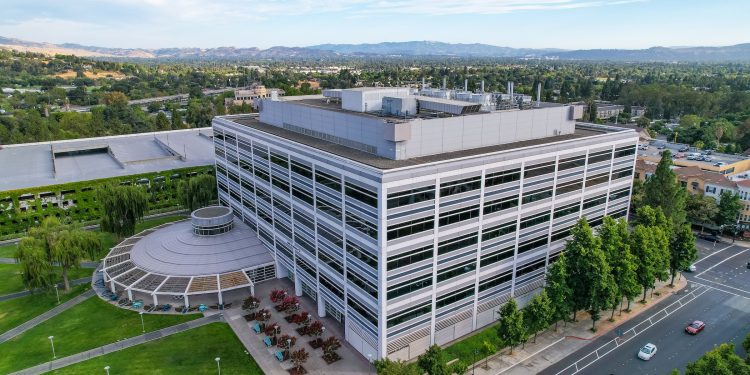#VerticalFarming #SanFranciscoAreaOffices #CommercialRealEstate #WorkspaceDemand #OfficeSpace #ConcordCalifornia #JamestownProperties #AgricultureInnovation #RealEstateDevelopment #ClimateChangeConcerns #IndustrialSpace #VentureCapital #EcoFriendlyFarming #HighTechGreenhouses #PandemicChallenges #OfficeVacancyRates #AeroFarmsBankruptcy #SustainableBusinessModel
As the demand for traditional office spaces dwindles, one Atlanta-based developer, Jamestown Properties, has come up with a groundbreaking solution for the vacant office building at 2000 Clayton Road in Concord, California. The company proposes transforming the 300,000-square-foot space into a vertical farming operation. Facing the challenges posed by the pandemic and the changing dynamics of workspace demand, this innovative plan signals a shift in the commercial real estate landscape.
The 15-acre office campus, which includes the Clayton Road property, was built by Bank of America in the 1980s. However, the space has remained empty since Bank of America vacated it earlier in the year, with no plans to renew the lease. Jamestown Properties, having acquired the property in a portfolio deal, has explored various alternatives for repositioning it, including housing or lab space. Now, the firm is seeking approval from Concord officials to repurpose the building for an undisclosed vertical farming company.
Vertical farming is a modern agricultural method that involves cultivating crops indoors using artificial lighting and significantly less water than traditional farming. This technology has garnered attention from venture capital firms due to its year-round production capabilities and reduced environmental impact, particularly in the face of concerns about climate change. These vertical farms, resembling high-tech indoor greenhouses, offer the potential to grow produce like lettuce without pesticides and with minimal water usage.
While the idea of repurposing vacant offices for vertical farming is innovative, it remains to be seen whether it will come to fruition. The proposal underscores the challenges faced by office landlords across the country as they grapple with soaring vacancy rates and decreased leasing activity in the wake of the pandemic. In the San Francisco area, office vacancy rates have risen by more than 4% over the past year, reaching an average of approximately 20%.
Though vertical farming has been praised for its cutting-edge technology and eco-friendly approach, the industry has also encountered hurdles. One notable example is the Chapter 11 bankruptcy filing by AeroFarms, a leading player in the sector. Critics point out that the high operating costs of vertical farms may hinder their ability to establish a sustainable business model.
As Jamestown Properties’ proposal for vertical farming in Concord unfolds, it represents a potential turning point for office spaces in the region. It could pave the way for other creative and unconventional approaches to repurposing underutilized commercial real estate, thereby addressing the challenges faced by the industry in a rapidly evolving business landscape.












